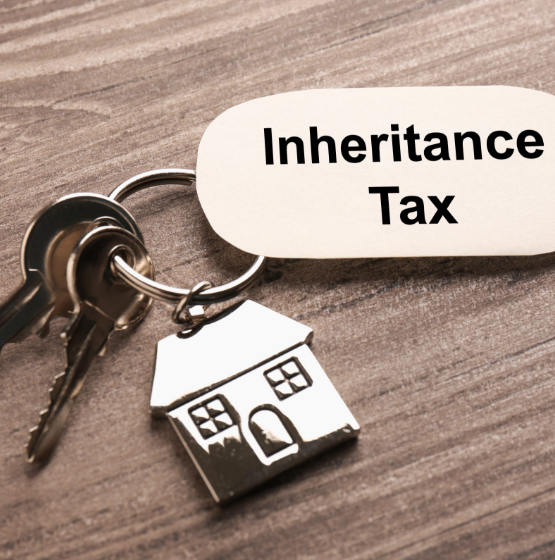When it comes to inheritance, many people are unaware of how much of their estate might go to the government. Inheritance tax (IHT) can significantly impact the amount your loved ones inherit, and understanding how it works is crucial for protecting your legacy. This guide provides key insights into how IHT is calculated, who pays it, and strategies for reducing the tax burden.
What is Inheritance Tax?
Inheritance Tax (IHT) is a tax levied on the estate of someone who has passed away. The tax applies to the total value of their assets, including money, property, and possessions. However, not all estates are subject to IHT. The tax only applies if the value of the estate exceeds a certain threshold.
For the 2024/2025 tax year, the standard IHT exemption, known as the nil-rate band, is set at £325,000. There’s also a residence nil-rate band, which applies when a person leaves their home to direct descendants, offering an additional £175,000 exemption. Together, these can create a total tax-free threshold of £500,000 for qualifying estates.
How Much is Inheritance Tax?
The standard rate of IHT is 40%, which applies to the portion of the estate that exceeds the tax-free threshold. However, this rate can be reduced to 36% if at least 10% of the estate’s net value is donated to charity.
For example, if the total estate exceeds the threshold, the part above £325,000 is taxed at 40%, unless there’s a charitable donation, in which case the tax rate is reduced.
Who Pays Inheritance Tax and When?
The responsibility for paying IHT falls on the estate, and it is typically handled by the executors of the will. Executors are the individuals responsible for managing the deceased’s estate, settling debts, and ensuring the distribution of assets. Beneficiaries, those who inherit assets, do not pay IHT on the inherited items unless there’s not enough money in the estate to cover the tax.
The Role of Probate and Payment Timing
Before assets can be released or sold, the executors must apply for probate, which legally authorizes them to administer the estate. IHT must be paid within six months of the end of the month in which the person passed away. If this deadline is missed, interest will be charged on the outstanding amount, even if probate hasn’t been granted yet.
In some cases, where the estate contains non-liquid assets such as property, IHT can be paid in instalments over ten years. However, interest is charged on the unpaid balance, except for the first instalment.
Exemptions and Reliefs to Minimize IHT
While IHT can seem inevitable, there are several exemptions and reliefs that can reduce or eliminate the tax burden. By strategically planning and utilizing the available reliefs, you can preserve more of your estate for your heirs.
Potentially Exempt Transfers (PETs)
A Potentially Exempt Transfer (PET) is a gift made during your lifetime that can be exempt from IHT if you live for seven years after making the gift. If you pass away within seven years, the gift is subject to IHT but may qualify for taper relief, which reduces the tax due over time.
Key Tax Reliefs
- Agricultural Relief: This relief can reduce the value of agricultural property for IHT purposes by up to 100%.
- Business Relief: If you own a business or shares in one, you may qualify for up to 100% relief.
- Charitable Donations: Leaving at least 10% of your estate to charity can reduce your IHT rate from 40% to 36%, and sometimes, it can reduce the estate’s taxable value entirely.
Using Life Insurance to Cover IHT
A life insurance policy placed in trust can be used to cover IHT. The proceeds of the policy will not count toward the estate’s value, and they can be used to settle the IHT liability, ensuring your beneficiaries inherit the full value of your estate without having to sell assets.
Trusts and Estate Planning
Setting up a trust can help reduce the taxable value of your estate, manage how assets are distributed, and protect your wealth from creditors. While setting up trusts can be complex, they offer long-term benefits, especially for young beneficiaries or those with special needs.
Inheritance and Property: What You Need to Know
Property is often the most significant asset in an inheritance, but it comes with specific tax rules. Whether you’re inheriting a family home or a buy-to-let property, understanding the tax implications is essential for making informed decisions.
Selling an Inherited Property
If you inherit a property and choose to sell it, the sale could be subject to Capital Gains Tax (CGT) if it’s sold for more than the market value at the time of inheritance. However, if the property is your main residence, CGT will not apply. It’s important to get a professional valuation and carefully consider the timing of the sale to minimize CGT exposure.
Tax Implications of Joint Ownership vs. Tenants in Common
The way property is owned affects both inheritance tax and the way it’s passed on:
- Joint Tenants: The property automatically passes to the surviving co-owner and doesn’t form part of the deceased’s estate.
- Tenants in Common: Each owner’s share can be passed to a beneficiary under a will, which may allow for better use of tax exemptions and reduce the overall IHT liability.
What to Do with an Inherited Estate
Once you’ve inherited assets, whether it’s money, property, or investments, there are several important steps to take:
- Notify Institutions: Notify the relevant institutions (banks, insurance companies, etc.) of the death and obtain necessary documentation.
- Valuation: Get a professional valuation of the inherited assets to determine the total value of the estate.
- Clear Debts: Settle any outstanding debts, including taxes, before distributing the assets.
- Accessing Assets: Once probate is granted, you can access the funds and manage the distribution of assets according to the will.
Pension Wealth and Inheritance
Pensions don’t typically form part of an estate for IHT purposes. If you die before the age of 75, your pension pot can be passed to beneficiaries tax-free. However, if you pass away after 75, the funds remain outside the estate for IHT purposes, but any withdrawals by beneficiaries will be subject to income tax.
From April 6, 2027, defined contribution pensions will be included in the estate for IHT purposes, potentially adding to the overall estate value for tax calculations.
Other Changes in IHT Laws
Several changes are set to impact IHT rules in the coming years:
- Residency-Based IHT: Starting April 6, 2025, the basis for IHT will shift from domicile-based to residency-based. This means that long-term UK residents will be liable for IHT on their worldwide assets.
- Agricultural and Business Property Relief: From April 6, 2026, both Agricultural Property Relief and Business Property Relief will be capped at £1 million per estate.
Conclusion
Inheritance tax doesn’t have to be a burden on your loved ones. By understanding the rules and planning ahead, you can reduce the amount of IHT due and ensure that more of your wealth passes on to your heirs. Whether through gifts, charitable donations, trusts, or life insurance, there are many strategies to minimize the tax impact and preserve your legacy.



